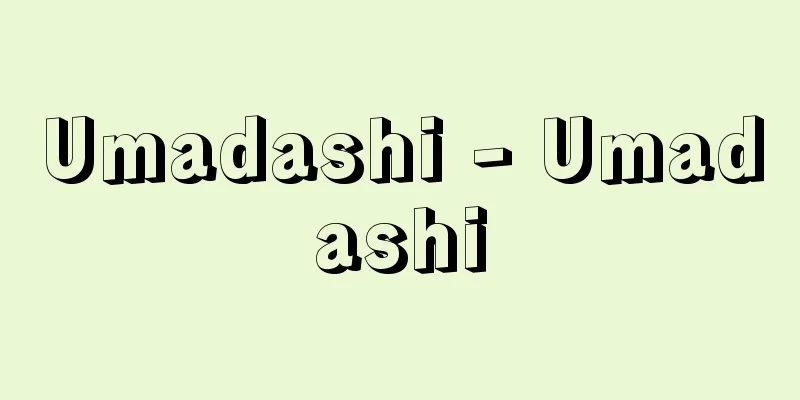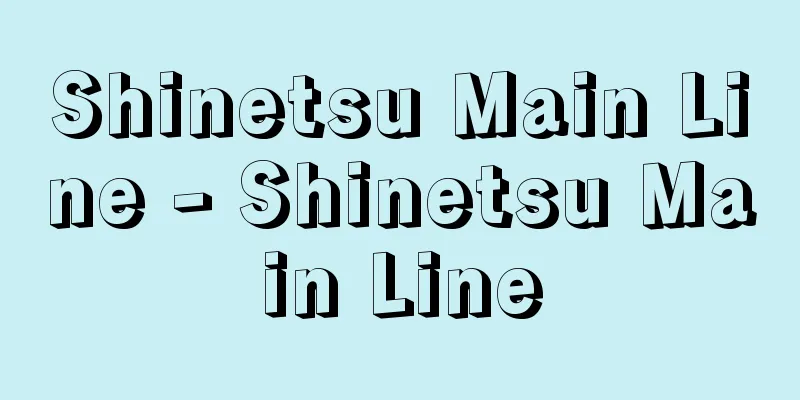Fukuzawa Yukichi

|
An enlightened thinker of the Meiji period and the founder of Keio Gijuku. Born on December 12, 1835, at the storehouse of the Nakatsu domain in Osaka, Fukuzawa Hyakusuke, a feudal lord with a stipend of 13 koku for two, and Ojun, as the second son. When he was two years old, his father died, and the family returned to Nakatsu (Nakatsu City, Oita Prefecture). He was raised by his mother alone, but he also helped her a lot. In 1854 (Ansei 1), he went to Nagasaki to study Dutch studies, and the following year, in 1855, he entered the Ogata Koan school in Osaka. In 1856, his older brother Sannosuke died of illness, and he took over the Fukuzawa family business, but returned to Koan's school, and in 1858, he was ordered by the domain to open a Dutch studies school at the Nakatsu domain's residence in Edo. This later developed into Keio Gijuku. In 1859, he visited Yokohama and realized the powerlessness of Dutch studies, so he switched to English studies. The following year, in 1860 (Man'en 1), he boarded the Kanrin Maru as a servant to the captain and traveled to America. In 1862 (Bunkyu 2), he visited six countries (France, England, Holland, Germany, Russia, and Portugal) as an expeditionary force for the shogunate's European mission. In 1866 (Keio 2), he wrote and published "Western Affairs, First Edition" based on his experiences traveling to Europe, which increased the price of paper in Luoyang as an excellent introduction to the history and systems of Western countries. In 1867, he accompanied the shogunate's American mission, but was suspended for three months after returning home for buying a large number of books without permission. In April 1868 (Meiji 1), he reformed his private school and renamed it Keio Gijuku, making it a place of study for those who wished to study Western studies, "without discrimination between merchants, artisans, farmers, or samurai." He is famous for giving a lecture on economics during the Ueno War. In August of that year (1868), he resigned from his position as a shogunate official, returned his stipend from the Nakatsu domain, and refused repeated requests to serve the Meiji government. He welcomed the abolition of the domains and establishment of prefectures in 1871, and wrote "Encouragement of Learning, First Edition" (published in 1872), which explained what the people should do. At the beginning of the book, he wrote the famous declaration of human equality, "It is said that heaven creates no man above another, nor below another," and he also preached that by studying Western civilization, people should "become independent for themselves and for their country." This book was well received by the people of the time, and he continued to write up to the 17th edition (1876), becoming a best-seller with a total circulation of 3.4 million copies. He established his position as an Enlightenment thinker. In 1873, he joined the Meirokusha, a group of the leading Western scholars of the time, and launched an enlightenment campaign for civilization and enlightenment through publications such as Meiroku Zasshi. He also pointed out the importance of public speaking, and held public speaking meetings at the Meirokusha and Keio. In 1874, his mother died. The following year, in 1875, he published Bunmei-ron no Gairyaku (An Outline of a Theory of Civilization), in which he argued that the stagnation of Japanese civilization was due to an overemphasis on power, and that it was free exchange and competition, with Western civilization as the goal, that would make Japan a civilized nation. This work was Japan's first masterpiece on civilization, and also presented a perspective that placed Western civilization in perspective. He also published magazines such as "Minjin Zasshi" (Folk Magazine) and "Katei Soudan" (Family Discussion) to educate the public, but gradually lost his enthusiasm. In 1881, in "Jiji Kogen" (Current Affairs Greetings), he declared, "The natural theory of freedom and civil rights is the right path, while the man-made theory of national sovereignty is the right path, and I am one who follows the right path." In 1885, he published "Datsu-A Ron" (Leaving Asia) and said, "I reject bad friends in the east of Asia." He protected the exile of Korean enlightened activists such as Kim Ok-gyun, but he basically chose the path of Japan joining the ranks of the Western powers, even at the expense of Asian countries. During that time, he was a member of the Tokyo Prefectural Assembly (1878), the first president of the Tokyo Academy (1879), the founding of the Kojunsha salon of notables (1880), and in 1882, he was involved in the launch of the newspaper Jiji Shimpo. During the First Sino-Japanese War, he declared it to be a war between civilization and barbarism, and worked hard to raise donations. He was said to have been overcome with tears of joy when victory came. In his later years, he wrote "Fukuo Hyakuwa," "Fukuo Jiden," "Jo Daigaku Hyoron/Shin Jo Daigaku," and other works. He died of cerebral hemorrhage on February 3, 1901. He was buried at Jokoji Temple (1-chome, Kami-Osaki, Shinagawa-ku, Tokyo). His posthumous name was Daikan Dokuritsu Jison Koji. Opinions about him vary from high praise for him as a liberal, democrat, rationalist, and feminist to criticism of his worship of the West, his compromise with the government, his cruelty to the general public, and his descent into authoritarianism. [Masaki Hirota] "The Complete Works of Fukuzawa Yukichi," 21 volumes (1958-1964/1969-1971, Iwanami Shoten)" ▽ "The Selected Works of Fukuzawa Yukichi," 14 volumes (1980-1981, Iwanami Shoten)" ▽ "Fukuzawa Yukichi," by Kano Masanao (1967, Shimizu Shoin)" ▽ "Fukuzawa Yukichi," by Toyama Shigeki (1970, University of Tokyo Press)" ▽ "Fukuzawa Yukichi," by Hirota Masaki (1976, Asahi Shimbun)" ▽ "Fukuzawa Yukichi," by Koizumi Shinzo (Iwanami Shinsho)" [References] | | | | | | | | | | |©Shogakukan Library "> Yukichi Fukuzawa Source: Shogakukan Encyclopedia Nipponica About Encyclopedia Nipponica Information | Legend |
|
明治時代の啓蒙(けいもう)思想家、慶応義塾の創立者。天保(てんぽう)5年12月12日、大坂の中津(なかつ)藩蔵屋敷で、13石二人扶持(ぶち)の藩士福沢百助(ひゃくすけ)とお順(じゅん)との間に次男として生まれる。2歳のとき父と死別、母子一家は中津(大分県中津市)へ帰る。母の手一つで育てられたが、彼もまた母をよく助けたという。1854年(安政1)長崎に蘭学(らんがく)修業に出、翌1855年大坂の緒方洪庵(おがたこうあん)塾に入門。1856年兄三之助が病死し福沢家を継ぐが、洪庵塾に戻り、1858年藩命で江戸中津藩屋敷に蘭学塾を開くことになった。これが後の慶応義塾に発展する。1859年横浜に遊び蘭学の無力を痛感、英学に転向。翌1860年(万延1)咸臨丸(かんりんまる)に艦長の従僕として乗り込み渡米、1862年(文久2)には幕府遣欧使節団の探索方として仏英蘭独露葡6か国を歴訪、1864年(元治1)に幕臣となる。1866年(慶応2)これら洋行経験をもとに『西洋事情初編』を書き刊行、欧米諸国の歴史・制度の優れた紹介書として洛陽(らくよう)の紙価を高める。1867年幕府遣米使節に随従するが、その際かってに大量の書物を買い込んだかどで、帰国後3か月の謹慎処分を受ける。 1868年(明治1)4月、これまでの家塾を改革し慶応義塾と称し、「商工農士の差別なく」洋学に志す者の学習の場とする。上野戦争のさなかに経済学の講義をしていたエピソードは有名。この年(1868)8月幕臣を辞し、中津藩の扶持も返上、明治政府からのたびたびの出仕要請も断る。1871年の廃藩置県を歓迎し、国民に何をなすべきかを説く『学問のすゝめ初編』(1872年刊行)を書き、冒頭に「天は人の上に人を造(つく)らず人の下に人を造らずと云(い)へり」という有名な人間平等宣言を記すとともに、西洋文明を学ぶことによって「一身独立、一国独立」すべきだと説いた。この書は当時の人々に歓迎され、第17編(1876)まで書き続けられ、総発行部数340万といわれるベストセラーとなった。ここに啓蒙思想家としての地位を確立した。1873年、当代一流の洋学者たちの結集した明六社(めいろくしゃ)に参加、『明六雑誌』などを舞台に文明開化の啓蒙活動を展開。また演説の重要性を指摘し、明六社や義塾で演説会を催した。1874年母死去。翌1875年『文明論之概略』を刊行、日本文明の停滞性を権力の偏重にあるとし、西洋文明を目的とし自由な交流と競合こそが日本を文明国にすると説いた。本書は日本最初の文明論の傑作であり、西洋文明を相対化する視点も示した。 そのほか、雑誌『民間雑誌』『家庭叢談(そうだん)』などを刊行して民衆啓蒙に努めるが、しだいにその情熱を失い、1881年の『時事小言』では「天然の自由民権論は正道にして、人為の国権論は権道なり、我輩(わがはい)は権道に従ふ者なり」と宣言し、1885年には「脱亜論」を発表、「亜細亜(アジア)東方の悪友を謝絶する」というに至る。朝鮮の開明派金玉均(きんぎょくきん)らの亡命を保護したりしたが、基本的にはアジア諸国を犠牲にしても日本が欧米列強に伍(ご)していく道を選ぶのである。その間、東京府会議員(1878)、東京学士会院初代会長(1879)、名望家のサロン交詢社(こうじゅんしゃ)の結成(1880)、そして1882年には新聞『時事新報』の創刊に携わる。日清(にっしん)戦争に際しては、文明と野蛮の戦争と断じ、献金運動に奔走。勝利には感涙にむせんだという。晩年には『福翁百話』『福翁自伝』『女大学評論・新女大学』などを著述。明治34年2月3日、脳溢血(のういっけつ)で死去。常光寺(東京都品川区上大崎1丁目)に葬られた。法名大観独立自尊居士。 自由主義者、民主主義者、合理主義者、女性解放論者などの高い評価と、西洋崇拝、政府への妥協、一般民衆への非情、権道主義への転向を批判する考えと、その評価はさまざまである。 [広田昌希] 『『福沢諭吉全集』全21巻(1958~1964/1969~1971・岩波書店)』▽『『福沢諭吉選集』全14巻(1980~1981・岩波書店)』▽『鹿野政直著『福沢諭吉』(1967・清水書院)』▽『遠山茂樹著『福沢諭吉』(1970・東京大学出版会)』▽『ひろたまさき著『福沢諭吉』(1976・朝日新聞社)』▽『小泉信三著『福沢諭吉』(岩波新書)』 [参照項目] | | | | | | | | | | |©小学館ライブラリー"> 福沢諭吉 出典 小学館 日本大百科全書(ニッポニカ)日本大百科全書(ニッポニカ)について 情報 | 凡例 |
Recommend
Struve, GOHvon (English spelling) StruveGOHvon
...The following six people are famous as astrono...
"The Blue Bird" (movie) - Aoitori
...Her starring films, of which she was made two ...
Byakurensha (English spelling) Bo-lian-she
A Chinese Buddhist association. It began in the fi...
Bolsena [Lake] - Bolsena
Lake Laccio, central Italy. It is a crater lake lo...
Ball riding - Tamanori
A type of acrobatics. Performers ride on large bal...
Kabure tribe - Kabure tribe
...North of the town of Sokode in the center of t...
Maiden Tribute of Modern Babylon
…His belief was that newspapers could improve the...
Galeola
…A large saprophytic orchid that lives symbiotica...
Typography
A technique for combining type for printing. In Eu...
Ozu Basin - Ozubonchi
A basin developed in the middle reaches of the Hi...
Triphenylmethane pigment - Triphenylmethane pigment
Triphenylmethane dyes are turned into pigments usi...
Aqua Fan - Aqua Fan
...When someone dies, the ancestral spirits in th...
Thamin deer
A mammal of the Cervidae family in the order Artio...
Ichijoji
A Tendai sect temple in Sakamoto-cho, Kasai City,...
Guttera edouardi (English spelling) Guttera edouardi
...The legs are strong and well developed. The fo...









